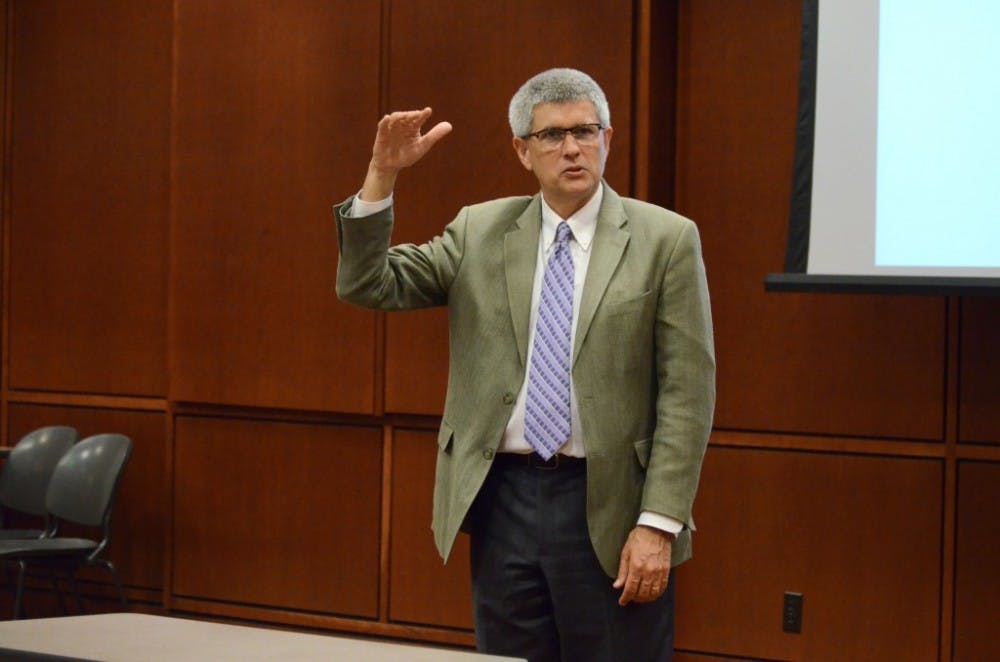With increasing numbers of digital resources right at individuals fingertips, new skills to process that amount of information must be developed. T. Mills Kelly, a history professor at George Mason University, broke this down in his presentation, “Digital Humanities and the End of Selective Ignorance” at Elon University in a recent talk.
Kelly defined selective ignorance as the choice of what information to ignore. Humans are bombarded with this issue every day, particularly when too many things are oncoming at once and the information is dense.
Selective ignorance is not a novel concept. In fact, Kelly said people in the humanities have been exercising selective ignorance for decades. Kelly cited card catalogues as a place where there is an abundance of information, but not all the information will be used.
Because of the digitization of sources and objects, such as posters, there are approximately 75 million sources available to those conducting research.
“What am I going to do with 75 million sources?” Kelly said.
While Kelly could be selectively ignorant when he was in graduate school, prior to the digitization of sources, that is not an option for students anymore.
“You can’t be selectively ignorant anymore,” Kelly said. “You are faced in a world where you can’t get away with that.”
As a result, Kelly said on April 13 that students must learn new skills to sift through and appropriately digest the material they are confronted with throughout the research process.
Metadata — data that describes other data — is critical in this learning process.
“You’re going to have to start learning about metadata,” Kelly said. “We’re going to have to include learning about these kinds of topics.”
Additionally, Kelly said students must develop their distant reading skills.
“[Distant reading’s] looking at a huge pile of information and making sense of that,” Kelly said. “You need both skills, but right now, we don’t teach much of distant reading.”
Additionally, Kelly said students need to be familiar with linked open data, a form of a database with open content, and be familiar with data visualizations.
As an audience member clarified, the humanities can be enlivened by this digitization.
“What you’re doing is showing us how the humanities can be enlivened by this digitization,” said a member of the audience.
Overall, Kelly said this access to more information is beneficial for students.
“I think the more information we have, the better,” Kelly said. “I don’t think there’s a negative to providing more information.”
Even so, the downsides include sifting through information without developed metadata and distant reading skills.
Amanda Sturgill, associate professor of communications, said that more skills than just interpreting texts are required now, because of the surge of information available.
She said her main takeaway from Kelly was that the skills learned throughout college are applicable for the future.
“I think you have to learn whole different kinds of skills now,” Sturgill said. “I think it is that you’re in school is going to be accessible to you for the rest of your life.”


